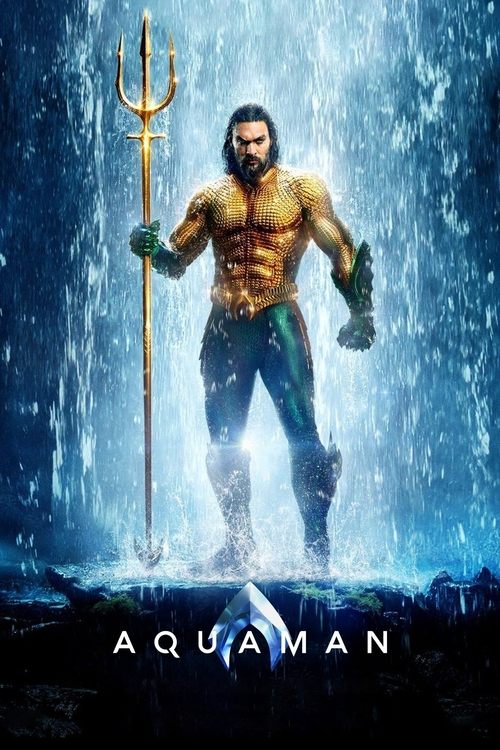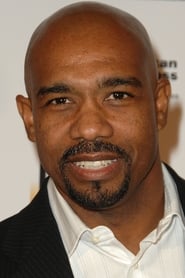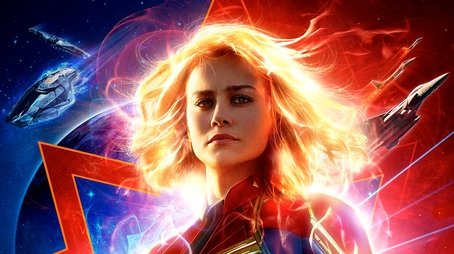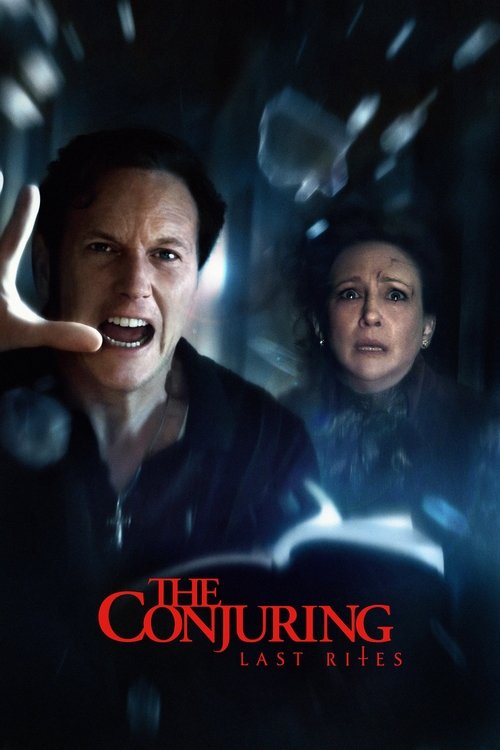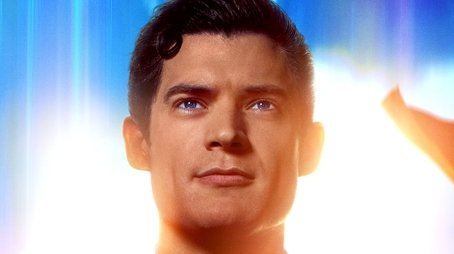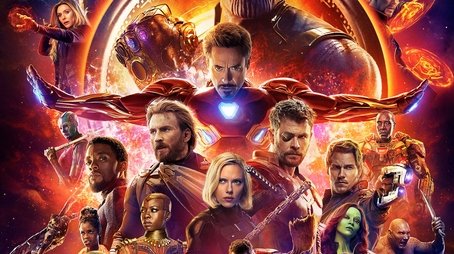
Ask Your Own Question
What is the plot?
In the tempestuous night of 1985, on the rocky coast of Maine, a fierce storm batters the lighthouse where Thomas Curry, a solitary lighthouse keeper, tends his post. Amid the howling wind and crashing waves, Thomas spots a figure struggling in the turbulent sea--a woman, Atlanna, queen of the underwater kingdom of Atlantis, who has fled her arranged marriage to King Orvax. She is wounded and desperate, seeking refuge from a life she refuses to accept. Thomas pulls her from the water and shelters her in his humble home. As he tends to her injuries, Atlanna reveals her royal identity and her flight from the oppressive demands of her people. Despite the gulf between their worlds, a tender love blossoms between them. They marry and have a son, Arthur, a boy born with the extraordinary ability to communicate with marine life, a bridge between land and sea.
But peace is fleeting. Atlantean soldiers, dispatched by King Orvax, arrive at the lighthouse to reclaim Atlanna. Bound by duty and honor, she must return to Atlantis, leaving Thomas and young Arthur behind. Before departing, she entrusts Arthur's upbringing and training to her loyal advisor, Nuidis Vulko, who teaches Arthur to harness his abilities and prepare for the legacy he carries. However, Arthur grows bitter upon learning that King Orvax executed his mother for defying tradition and bearing a half-human son. This brutal act severs Arthur's ties to Atlantis, and he rejects his heritage, choosing instead to live among humans.
Years later, in the present day, one year after the defeat of the cosmic threat Steppenwolf, Arthur Curry has become a formidable warrior and a public figure known as "Aquaman." His reputation as a metahuman hero is cemented when he intervenes in a violent hijacking of a Russian Akula-class submarine, the K-461 "Volk," by a ruthless band of pirates led by Jesse Kane and his son David Kane. Arthur infiltrates the submarine with fluid grace, dispatching the pirates with lethal precision. In a tense moment, Jesse Kane becomes trapped inside a torpedo and meets a grim end, suffocated in his own greed and violence. David Kane, witnessing his father's death and Arthur's refusal to help, swears vengeance, marking the beginning of a personal vendetta.
Meanwhile, beneath the ocean's surface, the political landscape of Atlantis is fraught with turmoil. Arthur's half-brother, Orm, the current King of Atlantis, schemes to unite the underwater kingdoms in a war against the surface world, blaming humanity for polluting and militarizing the oceans. Orm's ambition is clear: to declare himself Ocean Master and wage a devastating war to reclaim the seas. His advisor, Vulko, who once trained Arthur, now finds himself caught between loyalty to the throne and the hope that Arthur might be the key to peace.
Arthur's reluctant destiny calls him back to Atlantis. With the fierce and determined Atlantean warrior Mera by his side, he embarks on a perilous quest to retrieve the legendary Trident of Atlan, a powerful artifact that symbolizes the true king of Atlantis. Their journey takes them through treacherous underwater realms, including the terrifying Trench, a dark abyss inhabited by monstrous creatures. In these depths, Arthur faces brutal challenges that test his strength, courage, and resolve. The visual spectacle of the Trench is haunting--bioluminescent horrors lurk in the shadows, and the claustrophobic tension is palpable as Arthur and Mera fight for survival.
Throughout their journey, Arthur uncovers profound truths about his identity and the fractured history of Atlantis. He learns that the Trident is not only a weapon but a symbol of unity and rightful leadership. The revelation that Orvax executed their mother Atlanna for love and defiance fuels Arthur's determination to claim his birthright and prevent a catastrophic war. The political intrigue deepens as Arthur navigates alliances and betrayals among the seven underwater kingdoms, each with its own agenda.
Back on the surface, David Kane, now adopting the mantle of Black Manta, sharpens his vendetta against Arthur. Armed with advanced Atlantean technology and a personal grudge, Black Manta becomes a relentless adversary, embodying the collision between human and Atlantean worlds. Their confrontations are fierce and personal, with Black Manta's hatred driving him to deadly extremes.
The climax unfolds in the grand underwater city of Atlantis, where Arthur returns wielding the Trident of Atlan and commanding the colossal sea monster Karathen. The battlefield is a swirling maelstrom of clashing armies and elemental fury. Orm's forces, bolstered by alliances with other kingdoms, launch a devastating assault on the surface world, but Arthur's arrival shifts the tide. Riding Karathen like a mythic warrior, he inspires the allied underwater kingdoms to stand united against Orm's warmongering.
In a gripping final duel, Arthur and Orm face each other with raw power and fraternal tension. Their fight is brutal and unyielding, echoing the stormy origins of their family. Ultimately, Arthur triumphs, disarming Orm and proving his worthiness as king. Yet, in a moment of profound mercy, Arthur spares Orm's life, declaring, "I'm not a king who kills his own blood." This act of compassion resonates deeply with the Atlanteans, who recognize Arthur as their true ruler. Orm is taken into custody, his ambitions thwarted but his fate left open to redemption.
The film closes with Arthur embracing his dual heritage, standing as a bridge between two worlds. On land, a poignant reunion occurs as Atlanna is finally reunited with Thomas Curry, fulfilling a promise made decades earlier. Arthur's voiceover declares, "I am Aquaman," a powerful affirmation of his identity and role as protector of both the ocean and the surface world.
In the mid-credits scene, the story hints at future conflicts. Black Manta, having survived his previous encounter, is rescued by Dr. Stephen Shin, a scientist obsessed with Atlantis and its secrets. Intrigued by the Atlantean technology Black Manta possesses, Shin and Manta forge an uneasy alliance, setting the stage for new threats and adventures to come.
This sweeping narrative of love, betrayal, and destiny unfolds across breathtaking underwater vistas and storm-lashed shores, weaving together the fates of humans and Atlanteans in a tale of heroism and legacy. Every death, from Atlanna's execution by King Orvax to Jesse Kane's demise on the submarine, shapes the path Arthur must walk. Every revelation about his lineage and the Trident's power propels him toward his ultimate destiny as the unifying king of Atlantis and the heroic Aquaman.
What is the ending?
At the end of the movie "Aquaman," Arthur Curry, also known as Aquaman, successfully claims the throne of Atlantis after defeating his half-brother Orm in a climactic battle. He unites the seven underwater kingdoms and establishes peace between the surface world and Atlantis. Mera, who has been by his side throughout the journey, stands with him as they embrace their roles as leaders. Orm is imprisoned but is given a chance for redemption. The film concludes with Arthur embracing his identity as Aquaman, ready to protect both the ocean and the surface world.
Now, let's delve into the ending in a more detailed, chronological narrative.
As the final battle unfolds, Arthur Curry, clad in his iconic golden armor, faces off against his half-brother Orm, the Ocean Master, in a dramatic confrontation at the heart of Atlantis. The underwater city is a breathtaking spectacle, with its towering spires and vibrant marine life, illuminated by the bioluminescent glow of the ocean depths. The stakes are high, as Orm seeks to unite the seven kingdoms of Atlantis against the surface world, believing that war is the only way to secure their future.
The fight is intense, showcasing Arthur's growth as a warrior and leader. He draws upon the strength of his heritage, channeling the power of the Trident of Poseidon, which he has just claimed after a perilous journey to the Trench. The battle is not just physical; it is also a clash of ideologies. Orm, fueled by anger and a desire for vengeance, believes that the surface dwellers are a threat to their existence, while Arthur embodies a vision of unity and coexistence.
As they clash, the ocean around them roils with energy, reflecting the turmoil of their conflict. Arthur's determination is palpable; he fights not just for the throne but for the future of both worlds. Mera, who has been a steadfast ally, supports him, using her own powers to manipulate water and assist in the battle. Their bond deepens as they fight side by side, showcasing their mutual respect and growing love.
In a pivotal moment, Arthur gains the upper hand, using the Trident to disarm Orm and ultimately subduing him. With Orm defeated, Arthur stands victorious, but instead of delivering a fatal blow, he offers mercy. This act of compassion signifies his growth and understanding of leadership. He chooses to imprison Orm rather than kill him, believing that there is a chance for redemption and change.
The scene shifts to a grand assembly of the seven kingdoms, where Arthur is formally recognized as the rightful king of Atlantis. The underwater citizens, once divided, now rally behind him, united in their hope for a new era. Mera stands by his side, proud and resolute, as they both embrace their roles as leaders. The visual splendor of the ceremony is enhanced by the vibrant colors of the ocean and the joyous expressions of the Atlanteans, symbolizing a new beginning.
In the aftermath, Orm is shown in his cell, reflecting on his actions. He is not portrayed as a villain but as a complex character who has the potential for growth. This moment hints at the possibility of future alliances and the importance of understanding between the two worlds.
The film concludes with Arthur fully embracing his identity as Aquaman. He swims through the ocean, a symbol of hope and strength, ready to protect both the surface and the underwater realms. The final shot captures him as he rises from the water, a hero in both worlds, embodying the film's central themes of unity, acceptance, and the responsibility that comes with power.
In summary, Arthur Curry emerges as a leader who has reconciled his dual heritage, Mera stands as his equal, and Orm, though defeated, is given a chance for redemption. The ending encapsulates the journey of self-discovery, the importance of compassion, and the potential for peace between different worlds.
Is there a post-credit scene?
Yes, "Aquaman" features a post-credit scene that adds an intriguing layer to the story.
As the scene begins, we find ourselves in a dimly lit, atmospheric setting that resembles a high-tech laboratory. The camera pans to reveal Dr. Stephen Shin, a character who is deeply obsessed with the mysteries of Atlantis. He is seen poring over ancient texts and artifacts, his face illuminated by the glow of screens displaying underwater maps and images of Atlantis. His eyes are filled with a mix of determination and desperation, reflecting his relentless pursuit of knowledge about the lost city.
Suddenly, the door to the lab swings open, and a figure steps in, casting a long shadow. It is Black Manta, the formidable antagonist from the film, who has survived his previous encounter with Aquaman. His demeanor is intense and vengeful, driven by a desire for revenge against Aquaman for the defeat he suffered.
Black Manta approaches Dr. Shin, and the two engage in a tense conversation. Manta expresses his willingness to work with Shin, revealing his plans to acquire advanced technology to take down Aquaman. The scene is charged with a sense of foreboding, as Manta's thirst for vengeance is palpable, and Shin's eagerness to harness the power of Atlantis hints at future conflicts.
The scene ends with a close-up of Black Manta's helmet, glinting ominously in the low light, symbolizing the looming threat he poses. This post-credit scene sets the stage for potential future confrontations and expands the narrative universe, leaving viewers with a sense of anticipation for what lies ahead.
What is the significance of the Trident of Poseidon in Aquaman's journey?
The Trident of Poseidon is a powerful artifact that symbolizes the rightful rule of Atlantis. It is said to grant its wielder the ability to command the seas and unite the underwater kingdoms. Throughout the film, Aquaman, portrayed by Jason Momoa, embarks on a quest to find this trident, which is crucial for him to claim his birthright as the true king of Atlantis. The trident represents not only power but also Aquaman's acceptance of his dual heritage as both a human and an Atlantean.
How does Aquaman's relationship with his mother, Atlanna, influence his character?
Aquaman's relationship with his mother, Atlanna, played by Nicole Kidman, is pivotal to his identity and motivations. Atlanna, the former queen of Atlantis, sacrifices her royal life to protect her son from the dangers of the underwater world. Her love and teachings instill in Aquaman a sense of duty and belonging, driving him to embrace his heritage. The emotional weight of their bond is evident when Aquaman learns of her fate and the sacrifices she made, pushing him to confront his responsibilities and ultimately seek to unite the kingdoms of Atlantis.
What role does Orm play in Aquaman's quest for the throne?
Orm, played by Patrick Wilson, is Aquaman's half-brother and the primary antagonist of the film. As the current ruler of Atlantis, he seeks to unite the underwater kingdoms against the surface world, believing that humans are a threat to the oceans. Orm's ambition and desire for power create a direct conflict with Aquaman, who must confront him to claim his rightful place as king. Their rivalry is fueled by familial ties and differing ideologies, with Orm representing the traditional Atlantean view of superiority over the surface dwellers, while Aquaman embodies a more inclusive approach.
What challenges does Aquaman face in his quest to retrieve the Trident of Poseidon?
Aquaman faces numerous challenges in his quest to retrieve the Trident of Poseidon, including navigating treacherous underwater landscapes and battling formidable foes. One significant challenge occurs when he must confront the monstrous Karathen, a guardian of the trident, who tests his worthiness. Aquaman's determination and growth are highlighted during these trials, as he learns to embrace his identity and powers. The emotional stakes are high, as he must prove himself not only to the guardian but also to himself and the people of Atlantis.
How does Mera assist Aquaman in his journey?
Mera, portrayed by Amber Heard, plays a crucial role in assisting Aquaman throughout his journey. As a fierce warrior and the daughter of the former king of Xebel, she possesses knowledge of Atlantis and its history. Mera helps Aquaman navigate the political landscape of the underwater kingdoms and provides him with vital information about the Trident of Poseidon. Their relationship evolves from one of initial distrust to a deep bond, as Mera's strength and determination complement Aquaman's journey. She also aids him in combat, showcasing her skills and loyalty, ultimately becoming a key ally in his quest to unite Atlantis.
Is this family friendly?
"Aquaman," produced in 2018, is generally considered family-friendly, but it does contain some scenes and elements that may be objectionable or upsetting for younger children or sensitive viewers. Here are some aspects to consider:
-
Violence and Action Sequences: The film features numerous intense action scenes, including battles between characters, underwater combat, and confrontations with various creatures. These scenes can be quite graphic, with characters being injured or killed.
-
Mild Language: There are instances of mild profanity throughout the film, which may not be suitable for very young viewers.
-
Scary Creatures: The movie includes various monstrous sea creatures and villains that may be frightening to children, particularly during intense moments of conflict.
-
Themes of Betrayal and Conflict: The narrative explores themes of family betrayal, power struggles, and the consequences of war, which may be complex for younger audiences to fully grasp.
-
Emotional Moments: There are scenes that delve into loss, abandonment, and the struggle for identity, which could evoke strong emotions in sensitive viewers.
-
Romantic Elements: There are romantic undertones between characters that may not be appropriate for very young children, though they are not explicit.
Overall, while "Aquaman" is visually stunning and adventurous, parents may want to consider these elements when deciding if it is suitable for their children.

